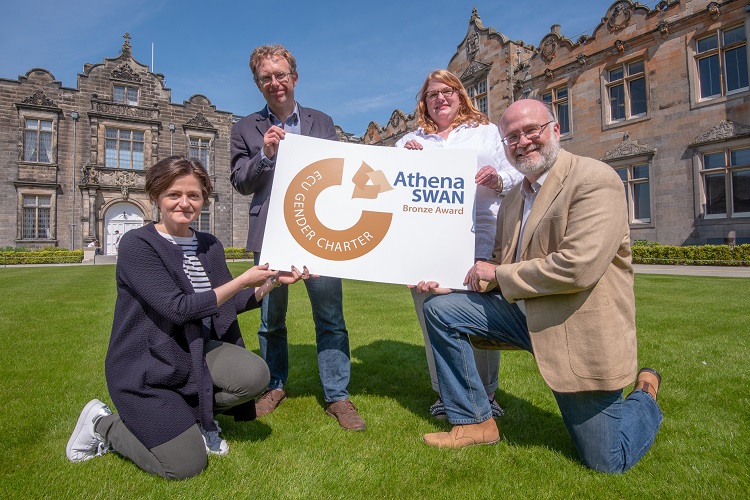University secures two new Athena SWAN Awards

The University is proud to announce the Schools of Classics and International Relations as the latest to have achieved Athena SWAN Bronze Awards.
Advance HE’s Athena SWAN Awards recognise commitment to the advancement of gender equality in academic, professional and support roles, and recognise departments and institutions taking action to identify and overcome barriers to career progression for all.
These awards bring St Andrews current total to 13 awards, which include one institutional Bronze, three departmental silver, and nine departmental Bronze awards across 19 Schools.
Assistant Vice-Principal for Diversity, Professor Ruth Woodfield, said: “I want to congratulate all of those involved in achieving these awards, which are great news for the University.
“These efforts are crucial to the University’s strategic ambition to put diversity and inclusion at the heart of the St Andrews experience, and we place great value on the important work that local Self-Assessment Teams do to empower staff and students.
“Our 2018 institutional bronze Athena SWAN award created a belief in change, and I’m delighted to see the Schools of Classics and International Relations turning that optimism into a palpable shift in culture.”
Bronze awards recognise that Schools have a solid foundation for eliminating gender bias and developing an inclusive culture that values all staff.
Head of the School of International Relations, Professor Anthony Lang, commented: “We have set out some ambitious targets, but we believe these ambitions are important for us to achieve greater diversity and respect within the School. We look forward to working with the University on a number of these issues in order to advance the wider diversity agenda at St Andrews.”
Head of the School of Classics, Professor Jason König, added: “We see the Athena SWAN charter as a set of guiding principles that will bring benefits to the whole School, in ensuring fair treatment and equal opportunity for all staff and students, and in guiding our attempts to deal with other diversity challenges alongside our work on gender equality.”
At an institutional level the University has made important progress in equality in the last few years, for example through: the launch of an in-house mentoring programme for senior academic women; gaining Carer Positive Employer status; achieving LGBT charter recognition (the only Scottish HEI to have that recognition); implementing core meeting hours; and establishing a University nursery.
Continued culture change is a priority, in order to ensure all staff and students are able to realise their potential.
Category Awards